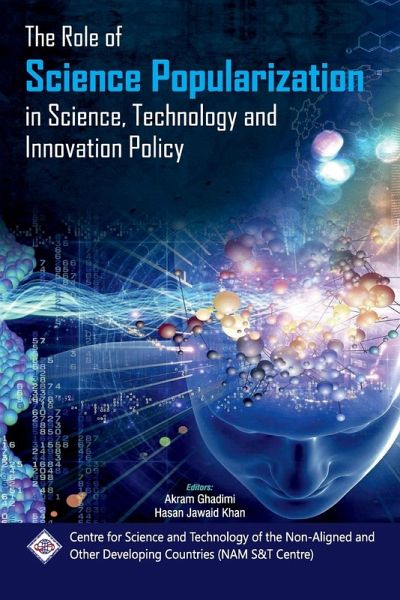
The Role of Science Popularization in Science, Technology & Innovation Policy
Versandkostenfrei!
Versandfertig in 1-2 Wochen
19,99 €
inkl. MwSt.

PAYBACK Punkte
10 °P sammeln!
Popularisation of Science, Technology and Innovation (STI) is the process of making scientific and technological knowledge accessible and understandable to broader segments of society. This process must go beyond mere dissemination; it should integrate the historical, cultural, political, social, and economic contexts of a population, embedding scientific knowledge within the culture of collective intelligence and social awareness. As access to information expands, it reshapes our worldview and transforms how humans interact with knowledge and with each other. In today's knowledge-based societ...
Popularisation of Science, Technology and Innovation (STI) is the process of making scientific and technological knowledge accessible and understandable to broader segments of society. This process must go beyond mere dissemination; it should integrate the historical, cultural, political, social, and economic contexts of a population, embedding scientific knowledge within the culture of collective intelligence and social awareness. As access to information expands, it reshapes our worldview and transforms how humans interact with knowledge and with each other. In today's knowledge-based society, access to STI-related information is synonymous with development, well-being, and improved quality of life. Scientific literacy is not just an educational goal-it is a fundamental social and ethical right. However, developing countries continue to face challenges in building capacity to store, retrieve, and disseminate scientific information. Therefore, it is vital to extend STI outreach by integrating formal education with informal communication channels, making knowledge accessible even to those outside academic and research institutions. This book presents 14 insightful papers contributed by researchers and experts from nine developing countries: Bhutan, Cuba, India, Iran, Mauritius, Nigeria, Sri Lanka, Togo, and Zimbabwe. Each paper highlights the policies, practices, and innovative strategies adopted-or proposed-for effectively communicating and popularising science and technology to ensure inclusive and sustainable development across societies.












